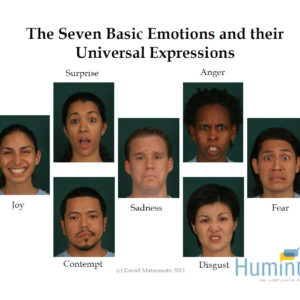Original price was: $199.00.$189.00Current price is: $189.00.
Leverage state-of-the-art behavioral science about behavioral indicators that have been validly and reliably demonstrated as signs a critical mental states. Led by world-renowned psychologist Dr. David Matsumoto.
Description
Learn to leverage state-of-the-art behavioral science about behavioral indicators that have been validly and reliably demonstrated as signs of critical mental states, including veracity and deception.
Led by Humintell Director Dr. David Matsumoto!
Understanding body language and reading people well is a crucial skill for many professionals whose jobs require interviews, interrogations, and information collection and reaction elicitation of others.
Topics covered include knowledge and skill development to identify various behavioral indicators of specific emotions, cognitions associated with words or verbal phrases, cognitive processes, and overall arousal. Participants learn to apply this knowledge base and skills in interviews and interrogations, and improve their abilities to gain insights about the mindsets of the interviewees by focusing on the world of nonverbal behavior evaluated in context against verbal output.
Participants are also guided through a hypothesis-testing approach at thinking critically about how such evaluations are made, as well as learning the scientific bases of the behavioral indicators covered.
Learning Objectives
Participants in this course will:
- Identify meaningful behavioral indicators associated with specific emotions, cognitions, and cognitive processes (and distinguish them from less meaningful behavior) in order to:
- Gain insights about the personalities, mindsets, motivations, and intentions of interviewees
- Identify meaningful content areas of the interview to the interviewee
- Assess veracity from deception
- Identify suspicious behavior and hostile intent
- Apply practice applying their newfound knowledge and skills in a template that helps them understand what they identified
- Practice the newfound knowledge, skills, and template application in order to facilitate interviewing efficacy





